The brand, that focused on autonomous tech and stunning looks, looks poised to join Evergrande and HiPhi on the scrap heap of history.
(This article has been edited to update the latest information in what seems to remain a fluid situation contrary to reports)
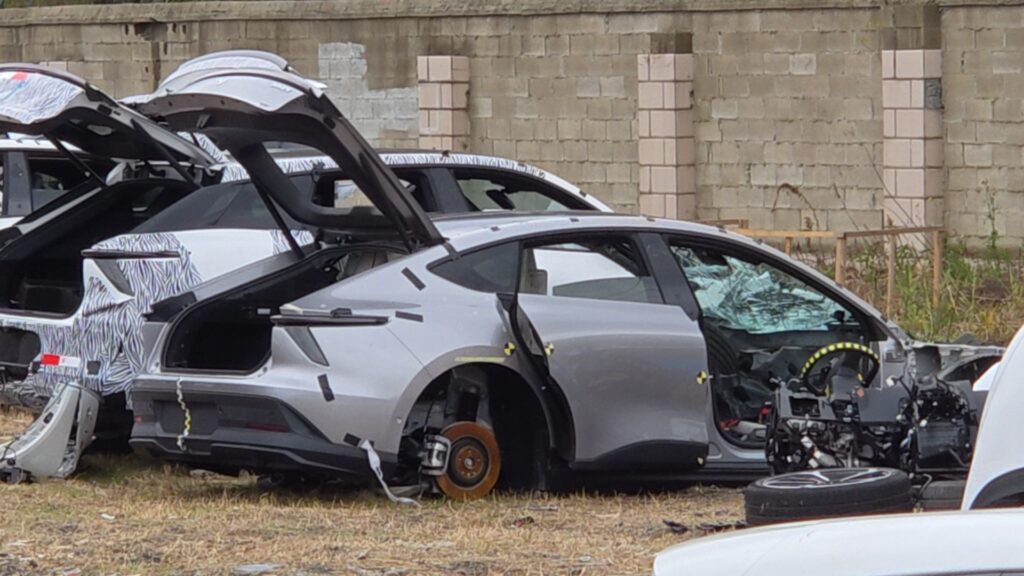
In a spectacularly quick demise, Chinese EV brand Jiyue has found itself on life support due to financial issues.
The downfall of the company came amid a whirlwind 48 hours which began on December 11th with rumours of financial troubles, before a letter from CEO Xia Yiping was shared informing concerned employees that the company would need to ditch projects, merge departments, and enter a phase of “entrepreneurship 2.0”.
The following day, videos of protests at Jiyue headquarters in Shanghai emerged where angry employees vented frustration and concerns at the lack of their social security payments. The CEO reportedly came out to assure the workers they would get paid and he and the leadership team would ensure this was the case.
By Friday 13th, the drama was apparently over, with widespread rumours swirling about missing CFOs and financial black holes.
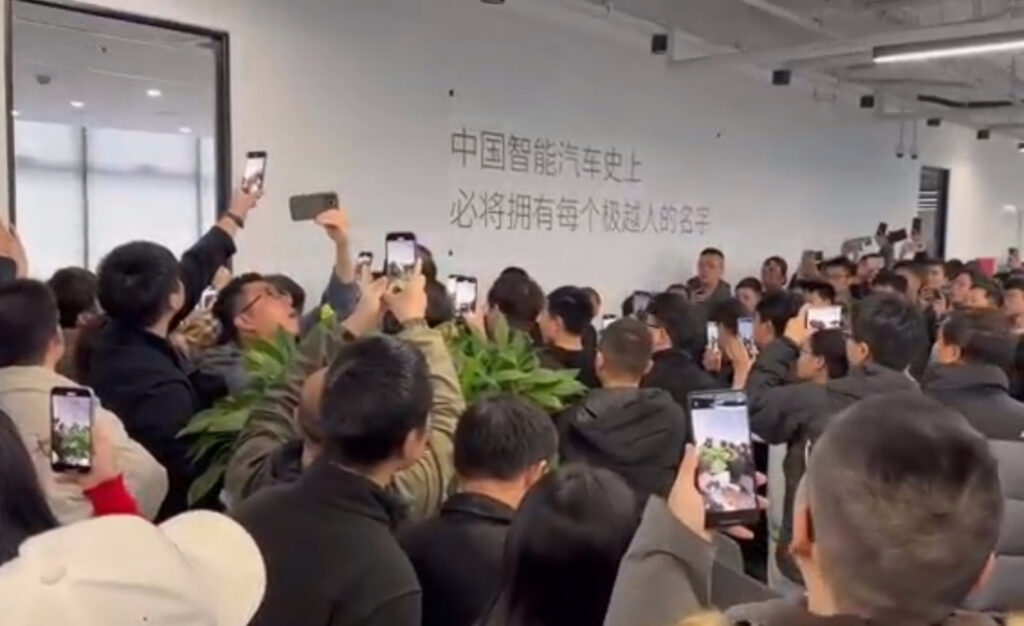
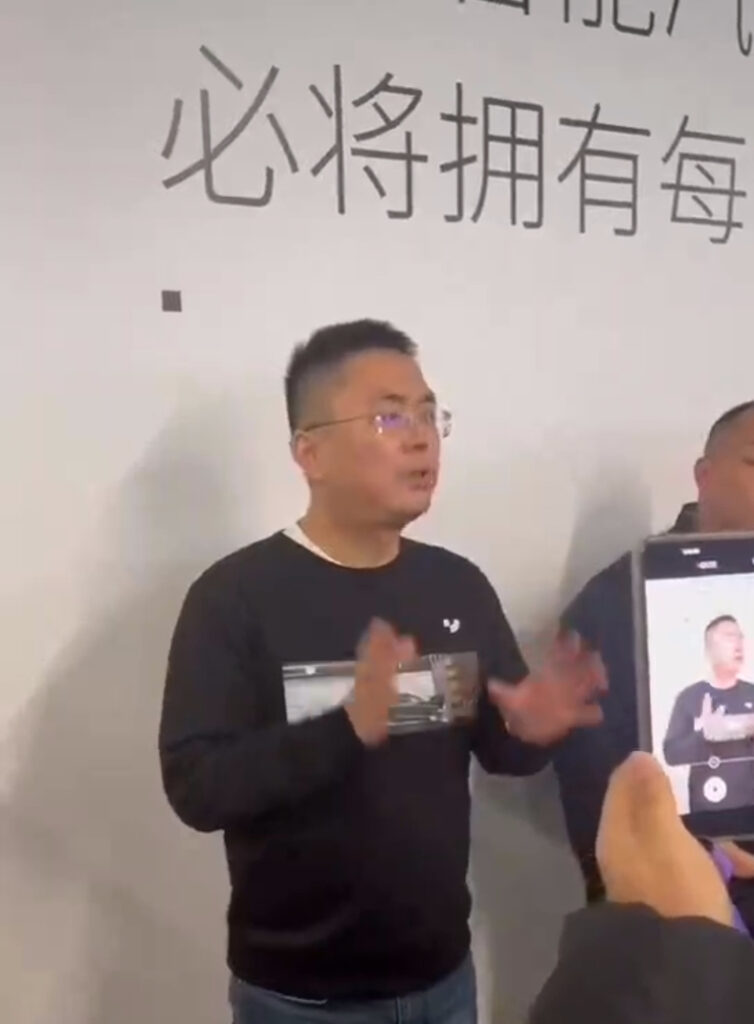
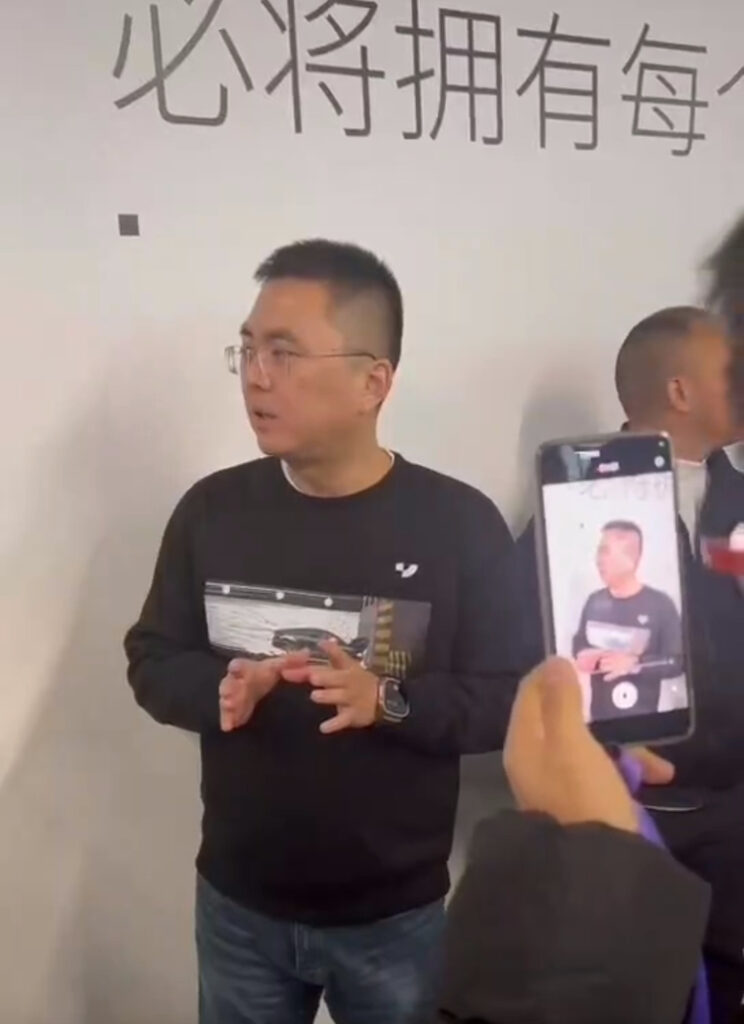
But how could a company, backed by the financial might of Geely, one of China’s largest auto makers, and Baidu, often referred to as the Chinese equivalent of Google, capitulate so rapidly?
It’s been known for some time that Jiyue was struggling to sell cars, often lingering around the 1,000 units mark before discounts in the summer saw improvement to a best-ever month of 3,107 in October. By the end of November, sales were already down 20 percent, despite the introduction of their second model, the 07.
The lack of sales has been attributed to a shortage of dealers, with a Jiyue spokesperson informing us that they had 140 stores in 40 cities before their demise, but this is far from the amount necessary to build awareness in a market of more than 70 brands.
Fairly high prices were clearly a factor, as the crush of China’s price war took its toll, but that hasn’t prevented similar high-end brands like AVATR and IM make progress with few models. It also wasn’t the tech or the product, with the excellent SEA platform underpinnings and award-winning Baidu Apollo GO ADAS system among many strong features on their models.

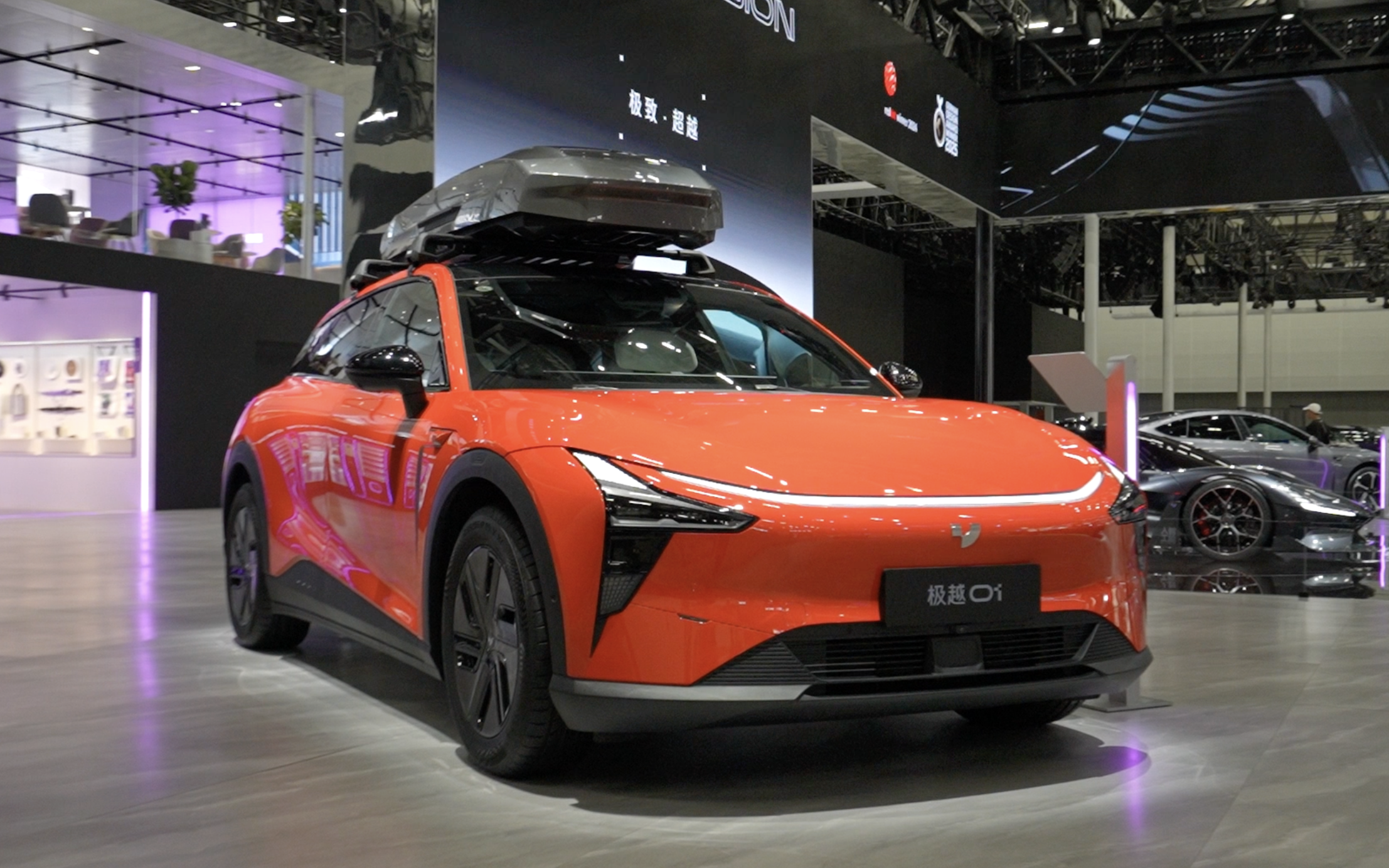
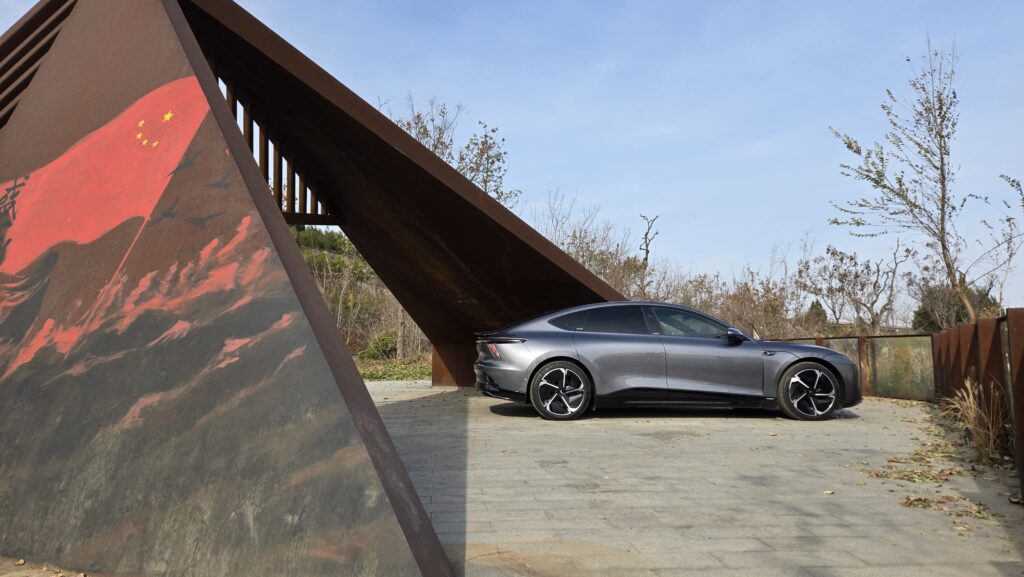
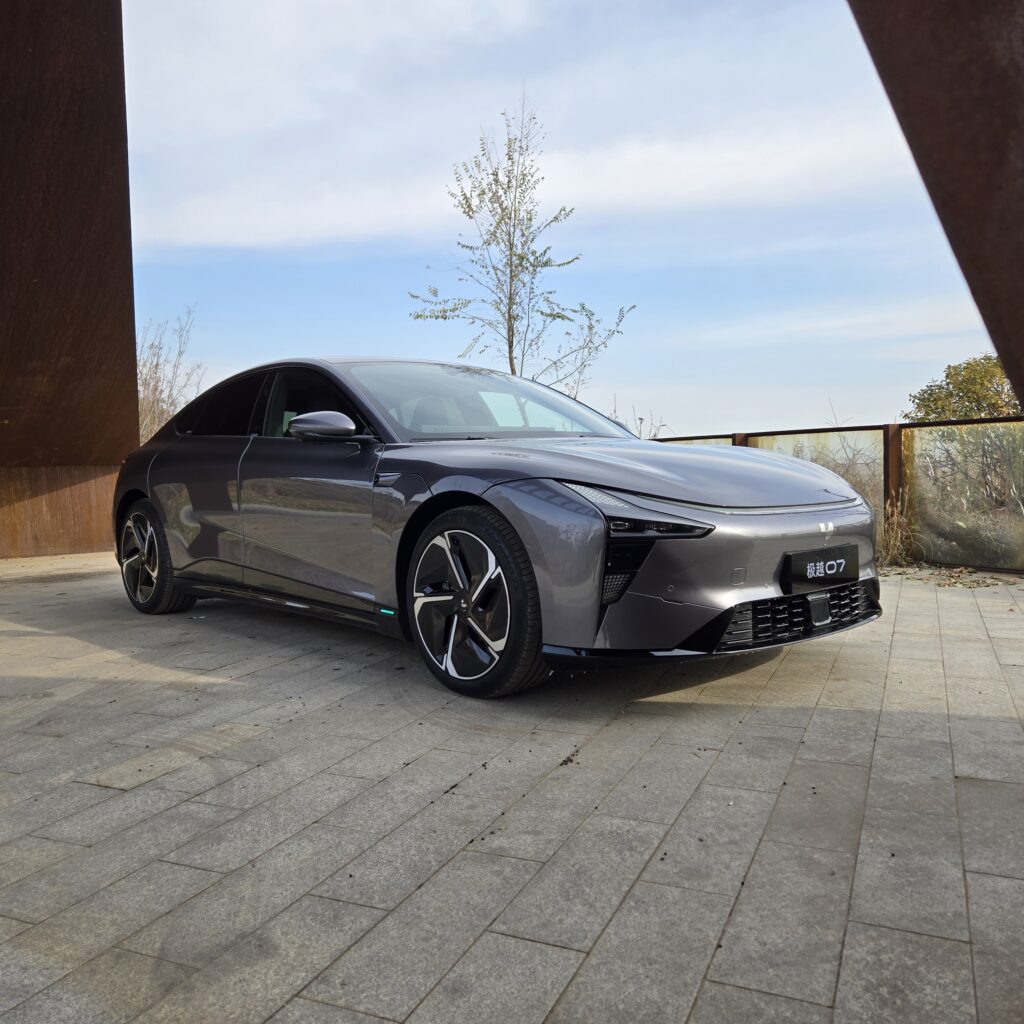
Internet speculation has been rife throughout the last few days with some articles suggesting the CFO, Liu Jining, had fled to Singapore with the company ledger. In fact, a look at his LinkedIn profile suggests he left sometime ago and has taken a position at Sinclair in the UK.
Other rumours state that in October, one of Jiyue’s backers, Baidu, sent a team to investigate Jiyue’s financials ahead of requests for additional funding, only to find a black hole of seven billion RMB, leading them to withdraw any offer of further funding.
The whereabouts of the money is the subject of much speculation with accusations of selective procurement and overpaying for goods by up to ten times, but there is no evidence yet to back this claim up.
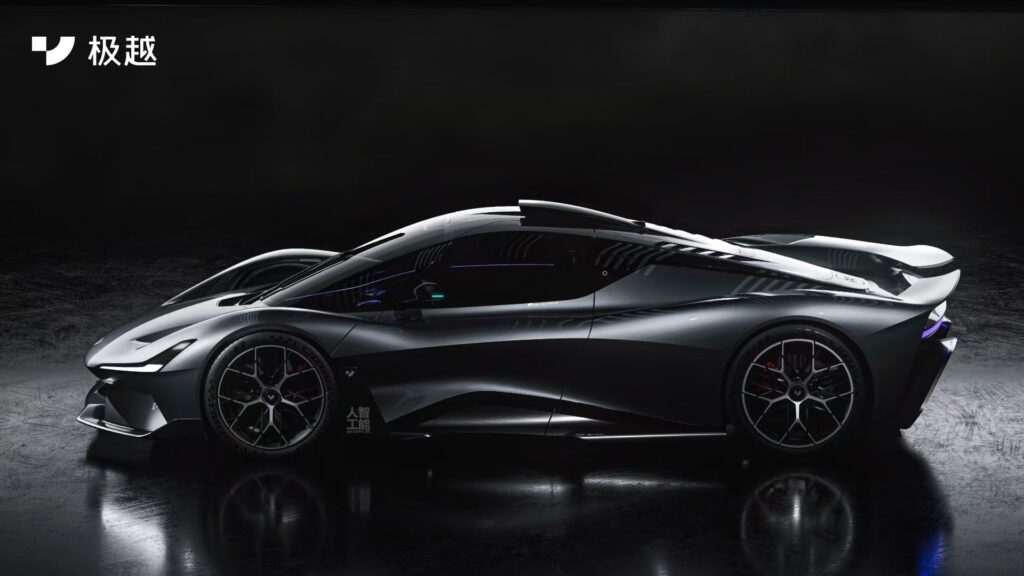
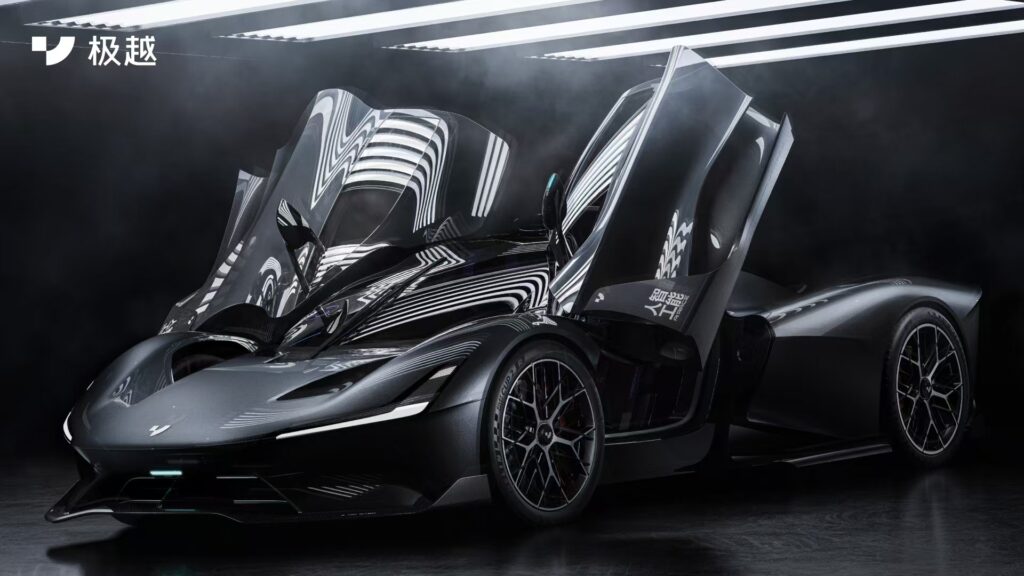
With that, the somewhat short-lived project and ambitions for autonomous hypercars like the ROBO X, that we made a video of here, look to be gone.
It’s worth noting that only last month, at the Guangzhou Auto Show, Jiyue had a large stand and were proudly displaying their ROBO X ahead of sales in 2027 with deposits open at RMB 50,000.
For the workers, left out in the cold so abruptly, the good news for them is that Geely and Baidu have reportedly agreed to step in and fulfil their social security payments, presumably with the agreement that the company closes operations immediately.
Geely, for their part, are supposedly owed significant amounts of money by Jiyue which it’s said dissuaded them from helping to fund the venture further.
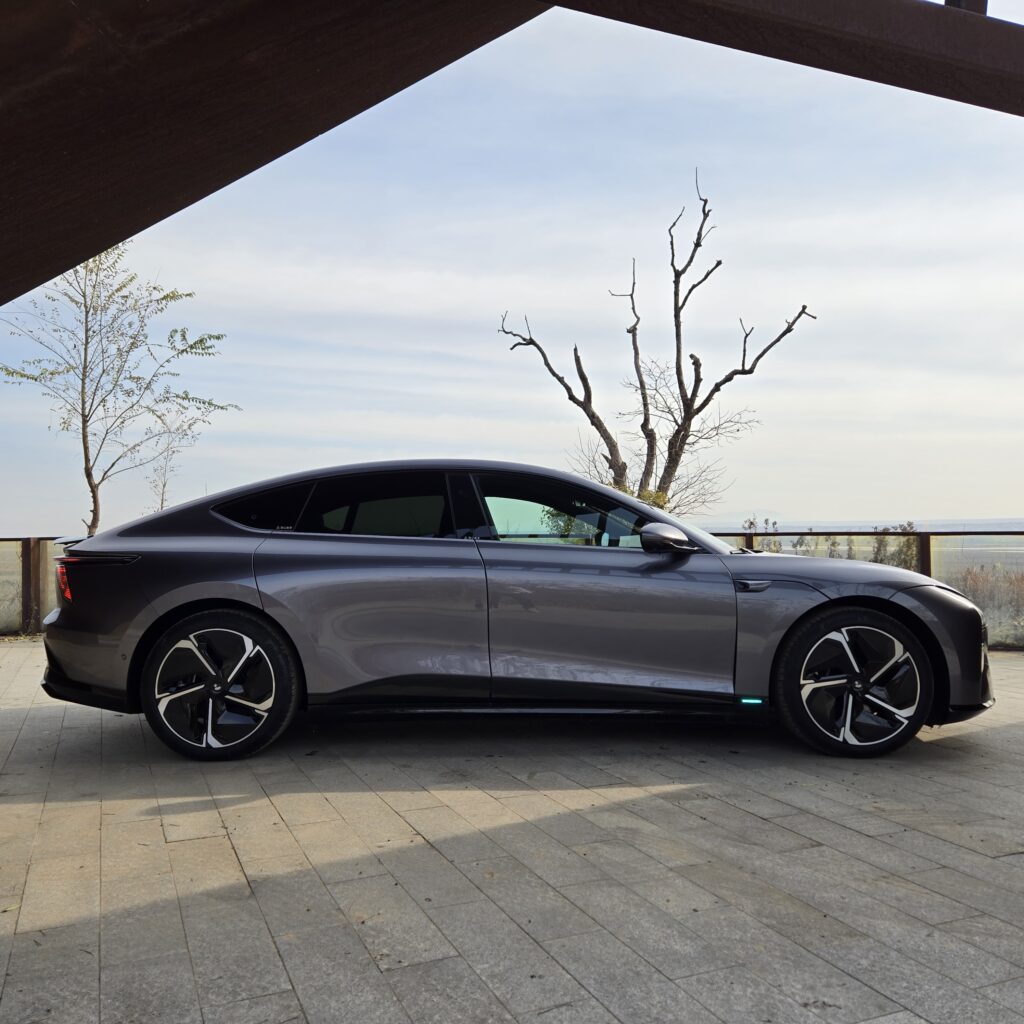
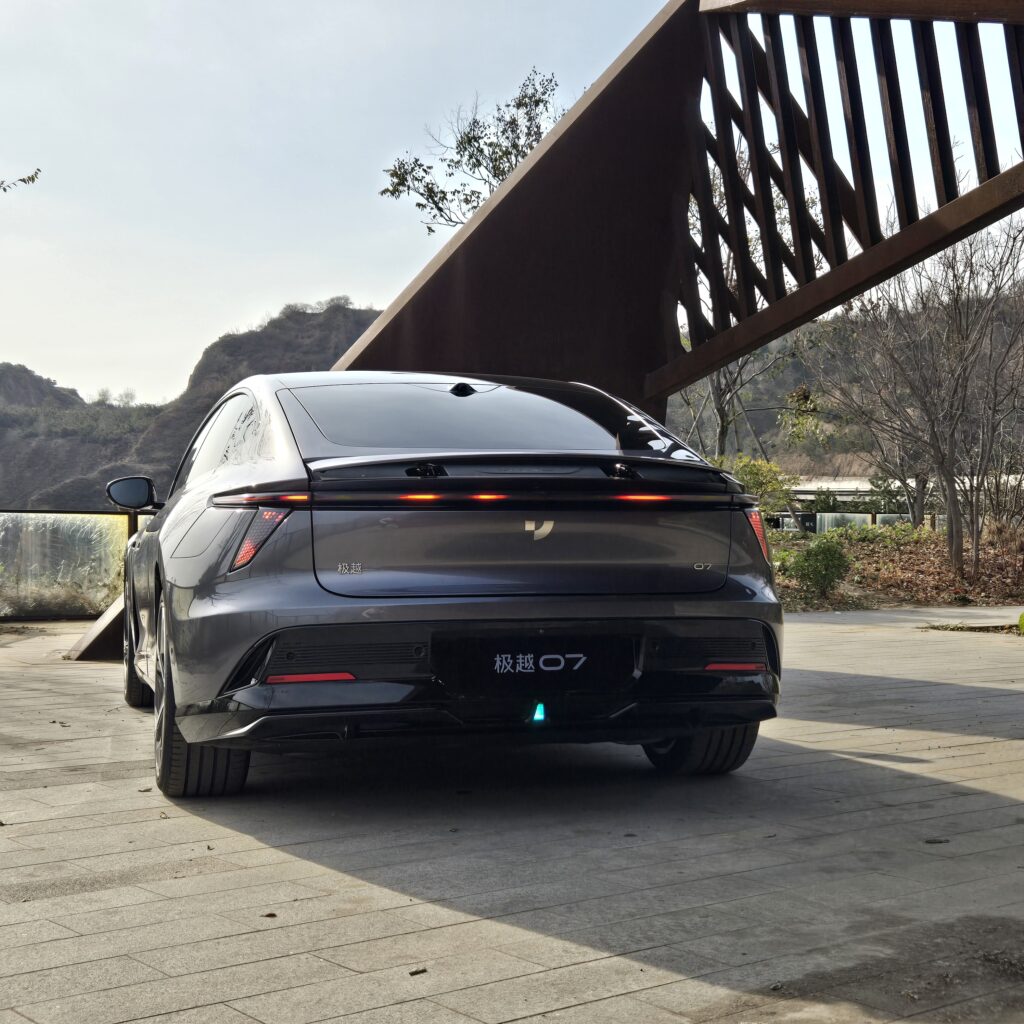
The demise of Jiyue comes amidst the brutal backdrop of life in China’s EV fast lane. So far in 2024, we’ve had the official closure of Enovate, the bankruptcy of HiPhi, and the long-expected demise of Evergrande Auto.
More brands are supposedly teetering on the edge of financial viability, with Neta already refusing to share monthly sales volumes and changing CEO to try and steady the ship, while SAIC brand Rising has seemingly cancelled their third model and been absorbed back into the Roewe brand from where it began.
Others, like Aiways and Skyworth, appear to exist only in a parallel universe, with Aiways apparently planning to move to Europe with Chinese sales virtually non-existent.
Behind the narrative, it appears clear that for some brands, the lure of potentially higher sales in less competitive markets (at least for now), is the only chance of survival.
Editor’s Notes
I was actually driving the Jiyue 07 the day the storm began, reviewing it for a forthcoming video, and had just completed a 23-hour, 1,500km journey behind the wheel.
You often hear rumours of a brand’s financial challenges weeks in advance and things tend to sputter to a halt, rather than disintegrate so quickly. By the time I’d dropped a friend in Ningbo, completed my review, and was handing it back to the Jiyue contact, it was all but over.
In the gravel parking lot where I returned the car, my contact arrived looking cold and undeniably dejected. I’d just finished watching the video of staff protesting at the HQ around a kilometre away and was walking around the parking lot where at least two hundred Jiyue 01 and 07 models were stored, some seemingly fresh off the line at some point, others ripped apart from crash tests, others wrapped in camouflage from testing, the same models I’d often seen on the road when I lived in the area.
I discussed with the contact the speed of what was happening and it wasn’t their words but their demeanour that all-but-confirmed this was the end of the line. “Sometimes when two companies work together this is what happens,” they said.
We were asked to drive the car to the back of the parking lot, almost into the weeds, where a bunch of 07s sat in various states of repair. Getting out of the car seemed almost a moment of closure for my contact, a final act, before an unmistakable choking back of an emotion.
It’s easy to downplay the coming and going of car brands in China, after all the list hasn’t exactly been short in these recent tumultuous years, but behind each failure is people, young and old, who now have to fight all over again, not against other brands but against other people, to find roles and start again.
If the alleged financial malfeasance is true, the perpetrators will hopefully be held to account for their actions.
In the end, the demise of Jiyue is, to these eyes, one of great injustices in China’s auto industry. Along with HiPhi, here were two brands with great products, daring products in many ways, technologically advanced and very accomplished, that really embraced this high-tech era, and yet for various reasons both seem all-but-gone, victims of a war of attrition.
In my upcoming video of the Jiyue 07, I actually say that I would take a 07 over a Xiaomi SU7 for the way that it drives, the feeling of quality, and the stunning looks, but it’s likely not even a potential now.
Many more brands will survive elimination than most think, and bear in mind there are already more new brands waiting to step in, but this one feels a real shame, because genuinely good products now seem destined for the scrapheap of history, toppled not by a lack of quality or capability, but by poor management.

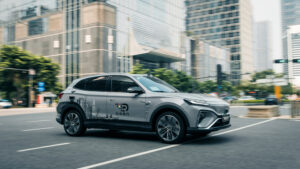
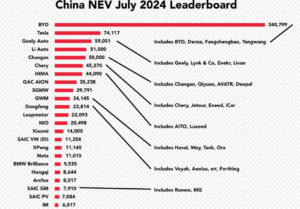
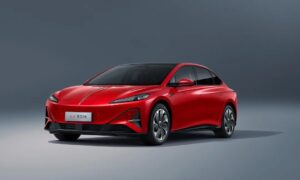
Hi Mark,
I share your feelings about the sudden demise of Jiyue. What a sad story for what should have been such a promising company. So many interesting things about them, from design to technology. And the 07 is certainly one of the best looking mid-size sedans out there.
Now I’m looking forward to your review of the 07. That’s certainly a test drive for the history books…
There will be many more of the 165 EV manufacturers in China to go under, it’s a modern day gold rush as China takes over the car industry and only a few will hit pay dirt.
False information getting through as usual. There are not 165 EV manufacturers in China making actual cars, i.e. not the low-speed electric vehicles often seen in rural areas, there are around 70, of which a great number are part of larger groups which are state-owned. These brands are most likely to be absorbed into the larger group if unsuccessful, or be maintained by the government. Those at the greatest risk are private-owned companies that are not able to expand sales outside of China.